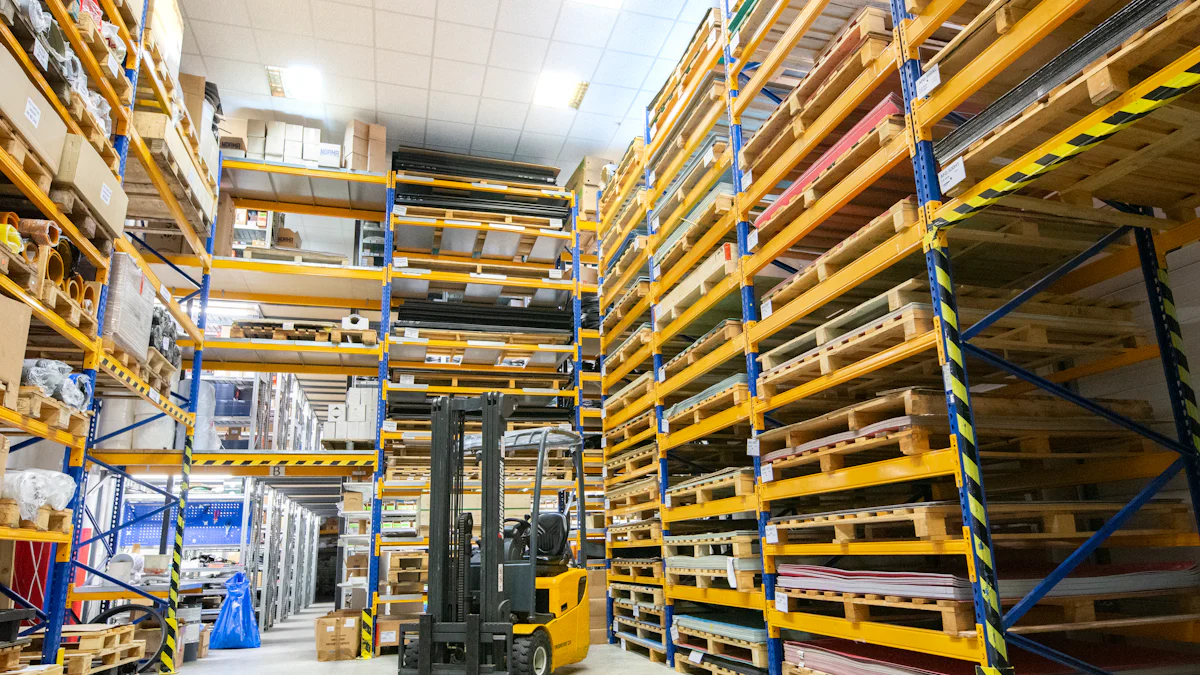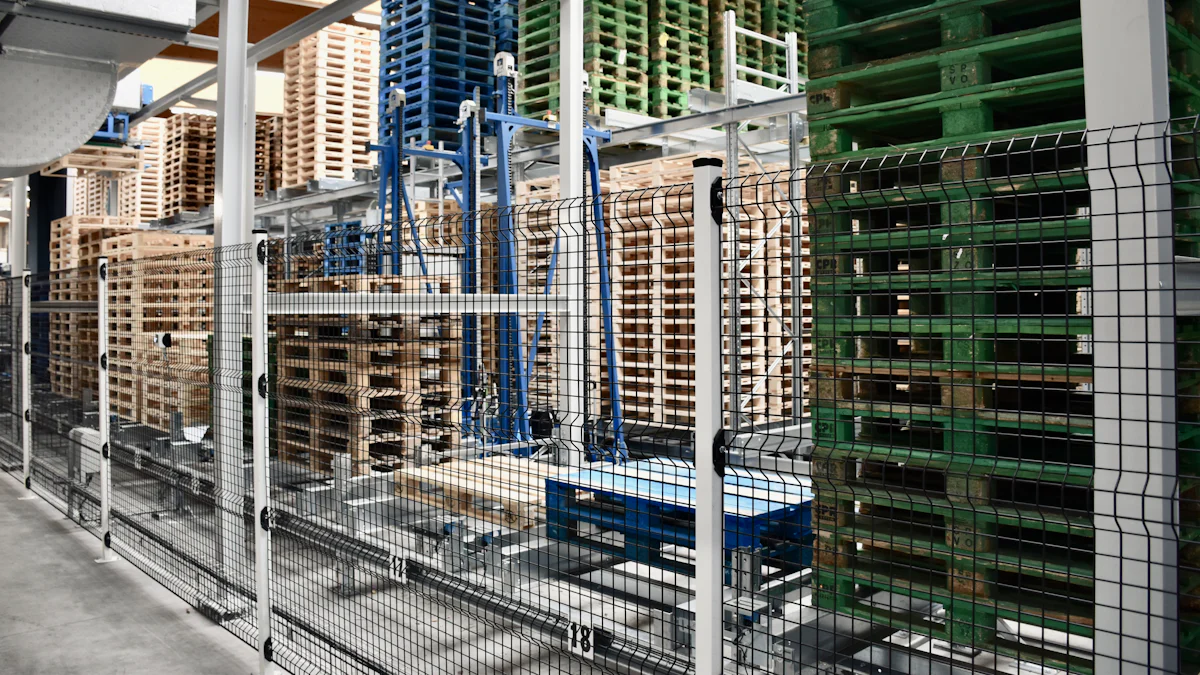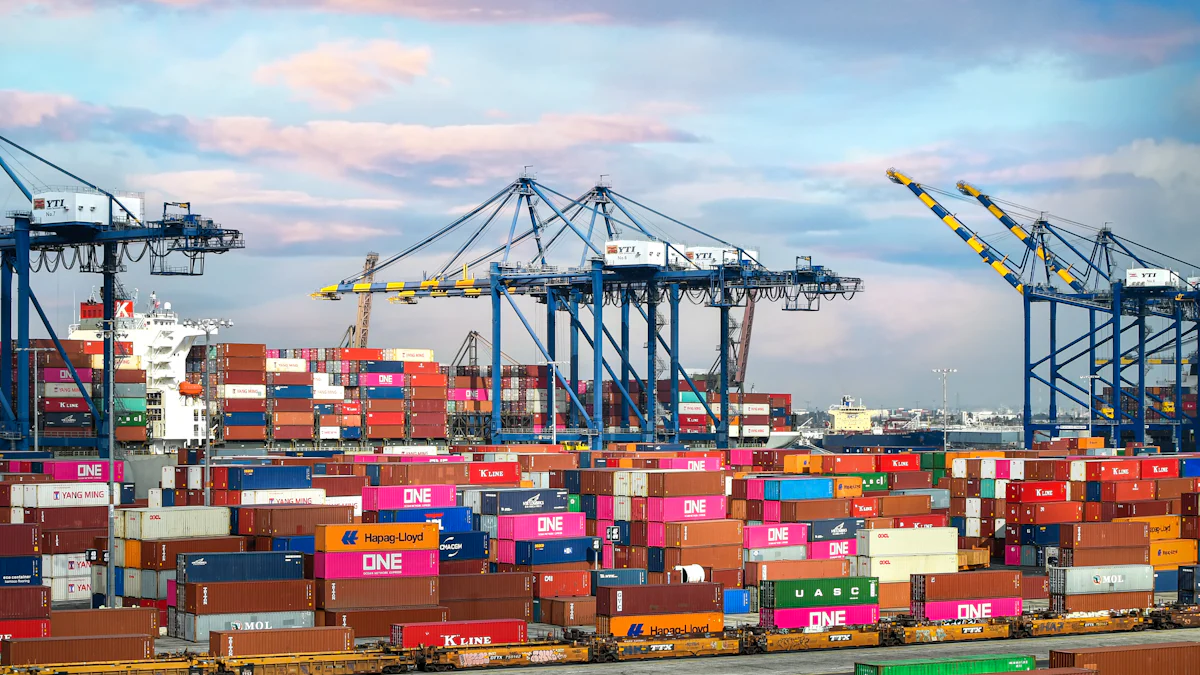What Are Smart Warehouses? Exploring Their Role in Modern Logistics

Smart warehouses represent the future of logistics, integrating cutting-edge technologies to streamline operations and enhance efficiencies. In today's fast-paced business environment, the role of smart warehouses is paramount in ensuring seamless inventory management and supply chain optimization. This blog delves into the definition of smart warehouses, their significance in modern logistics, and provides a structured overview to explore their transformative impact on warehouse operations.
Understanding Smart Warehouses
When delving into the realm of smart warehouses, it becomes evident that these innovative facilities are at the forefront of modern logistics. The definition of a smart warehouse goes beyond traditional storage spaces, incorporating cutting-edge technologies to optimize operations and enhance efficiencies.
Key Characteristics
The implementation of advanced tracking technologies ensures real-time monitoring and accurate inventory management.
Automation plays a pivotal role in smart warehouses, streamlining processes and reducing manual labor.
Integration with IoT devices enables seamless connectivity and data-driven decision-making.
Examples of Smart Warehouses
Amazon: Utilizes robotics and AI for efficient order fulfillment and inventory management.
Alibaba: Implements IoT sensors for real-time tracking of goods throughout the supply chain.
Walmart: Leverages data analytics to forecast demand and optimize inventory levels.
Benefits of Smart Warehouses
Enhancing operational efficiency is a core advantage offered by smart warehouses. By automating tasks and leveraging technology, these facilities significantly boost productivity while ensuring accuracy in inventory management.
Efficiency and Productivity
Automation reduces human error, leading to faster processing times and improved workflow.
Real-time data insights enable proactive decision-making, enhancing overall operational efficiency.
Cost Reduction
Minimizing manual labor through automation decreases labor costs and increases cost-effectiveness.
Predictive maintenance powered by AI prevents costly downtime, optimizing resource allocation.
Challenges and Solutions
Despite their numerous benefits, smart warehouses face certain challenges during implementation. Overcoming these barriers is crucial to maximizing the potential of these advanced facilities.
Implementation Challenges
Initial investment costs can be high, deterring some organizations from adopting smart warehouse solutions.
Integrating new technologies with existing systems may pose compatibility issues, requiring careful planning.
Overcoming Barriers
Conducting thorough cost-benefit analyses helps justify investments in smart warehouse technologies.
Collaborating with experienced tech partners can streamline integration processes and ensure seamless operation.
By understanding the intricacies of smart warehouses, businesses can unlock unparalleled efficiencies in their logistics operations while staying ahead in today's competitive market landscape.
Technologies in Smart Warehouses

IoT and Real-Time Tracking
In the realm of smart warehouses, IoT devices play a pivotal role in enabling real-time tracking of goods. These devices provide a bird’s-eye view of inventory, aiding workers in efficiently picking items as needed. By ensuring precise item locations, IoT devices contribute significantly to maintaining accuracy and efficiency within smart warehouses.
Role of IoT Devices
IoT Devices: Track goods in real-time.
Visibility: Provides a bird’s-eye view of inventory.
Efficiency: Aids workers in picking items accurately.
Benefits of Real-Time Tracking
Accuracy: Ensures every item is where it should be.
Efficiency: Facilitates timely picking processes.
Operational Excellence: Maintains high levels of efficiency.
AI and Data Analytics
The integration of AI and data analytics has revolutionized smart warehouses by enhancing decision-making processes. Leveraging advanced analytics, these technologies predict demand patterns, optimize stock levels, and anticipate maintenance needs for equipment. This strategic approach ensures operational efficiency and cost-effectiveness within warehouse operations.
Enhancing Decision-Making
Predictive Analytics: Forecasts demand patterns.
Optimization: Enhances stock levels efficiently.
Strategic Insights: Guides decision-making processes effectively.
Predictive Maintenance
Equipment Health Monitoring: Anticipates maintenance requirements.
Preventive Measures: Minimizes downtime risks effectively.
Cost-Efficiency: Optimizes resource allocation strategically.
Robotics and Automation
Automation technologies like robotics and automated conveyor belts are instrumental in optimizing workflows within smart warehouses. By reducing manual labor and streamlining processes, these technologies enhance operational efficiency while decreasing labor costs significantly.
Use of Robots
Efficient Workflow: Streamlines warehouse operations effectively.
Labor Reduction: Minimizes manual tasks efficiently.
Performance Enhancement: Improves overall productivity levels.
Automated Conveyor Belts
Workflow Optimization: Speeds up inventory movement within the warehouse.
Resource Efficiency: Reduces manual handling requirements effectively.
Cost Savings: Lowers operational expenses through automation implementations.
By integrating IoT devices for real-time tracking, leveraging AI for data-driven decision-making, and implementing robotics for automated workflows, smart warehouses are at the forefront of modern logistics evolution. The synergy between these technologies optimizes warehouse operations, ensuring seamless inventory management and supply chain optimization for enhanced business outcomes.
Impact on Modern Logistics

Revolutionizing Supply Chain
Smart warehouses vs. traditional warehouses:
Smart warehouses significantly increase efficiency and productivity.
They minimize errors and enhance accuracy and speed of picking.
Improved order fulfillment speed is a key advantage.
Operational efficiency:
Increased operational efficiency is a hallmark of smart warehouses.
They provide enhanced inventory management capabilities.
Order fulfillment speed and accuracy are notably improved.
Cost reduction:
Smart warehouses reduce costs through optimized resource allocation.
Better supply chain visibility leads to cost-saving opportunities.
The shift towards smart warehousing has revolutionized the supply chain industry by enhancing operational efficiency, improving inventory management practices, and accelerating order fulfillment processes. The key differences between smart warehouses and traditional ones highlight the significant advantages that technology integration brings to modern logistics operations.
Faster Order Fulfillment
Accuracy and Speed:
Smart warehouses increase picking accuracy and speed significantly.
Real-time data access ensures timely order processing.
Worker Safety:
Enhanced worker safety is a priority in smart warehouses.
Automation reduces manual errors, promoting a safer work environment.
Customer Satisfaction:
Improved order fulfillment directly impacts customer satisfaction levels positively.
In the realm of faster order fulfillment, smart warehouses excel in providing accurate and swift processing of orders. By leveraging real-time data access, these facilities ensure that orders are fulfilled promptly, leading to heightened customer satisfaction. Additionally, the focus on worker safety through automation contributes to creating a secure working environment within smart warehouse settings.
Smart warehouses have become a cornerstone in modern logistics, reshaping how businesses manage their operations and supply chains effectively.
The transformative impact of smart warehouses is evident through enhanced efficiency, accuracy, and cost-effectiveness in warehouse management practices.
Looking ahead, the future of logistics lies in embracing advanced technologies like IoT, AI, and robotics to further optimize warehouse operations.
Businesses leveraging smart warehousing solutions can expect improved customer experiences through faster shipping and accurate order fulfillment.
